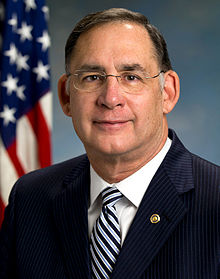
U.S. Sen. John Boozman (R-AR) recently released an editorial, which stated that Congress’ use of continuing resolutions (CR) is harming national security due to its insufficient ability to rein in spending and allow agencies to plan for the future.
“This chronic budget uncertainty makes it difficult for federal agencies to plan ahead,” Boozman said. “As chairman of the Senate Appropriations Subcommittee on Homeland Security I’ve heard the concerns of the Department of Homeland Security with the CR approach to funding and how it hampers our ability to defend against national security threats.”
While 12 appropriations bills were passed out of committee last year, Boozman cited the the Democratic Senate Caucus’ unwillingness to advance the bills for an up-or-down vote as one major reason for the continued use of CRs.
Boozman said the FY2017 Homeland Security Appropriations bill would both ramp up border security and immigration enforcement, along with fully funding the U.S. Department of Homeland Security’s (DHS) immigration enforcement needs by providing hundreds of millions of dollars more than the current CR.
“This would provide agencies like Customs and Border Protection and Immigration and Customs Enforcement with the resources and manpower to enforce all of our nation’s immigration laws and could end the ‘catch and release’ policy that forces officers to let apprehended illegal immigrants leave custody as they wait for their deportation hearing,” Boozman said.
Additional requests raised by the senator include an increase in staffing and technology resources for the Transportation Security Administration (TSA) to address the four percent increase in airline passenger traffic this year and strengthening the nation’s cybersecurity defenses.
Boozman has served as a U.S. Senator for the state of Arkansas since 2012. In 2016, he became the state’s senior U.S. Senator. Prior to 2012, he served as a representative for Arkansas’ 3rd Congressional District for five terms.




